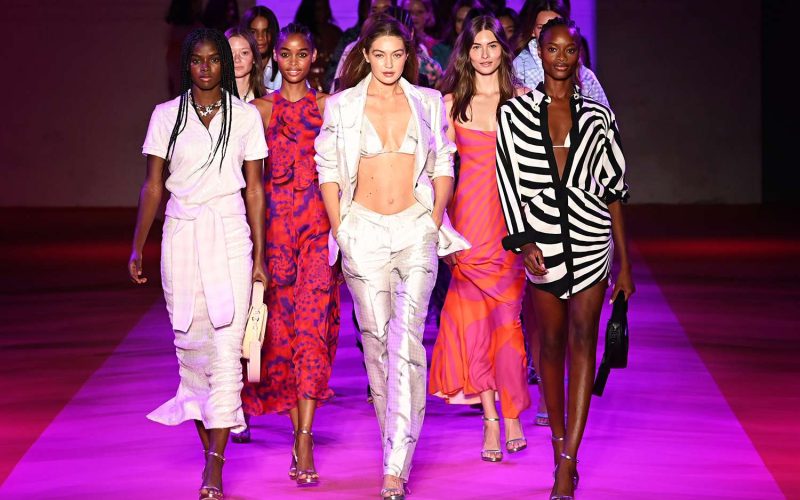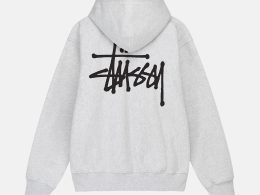Fashion has long been associated with glamour, innovation, and creativity. However, in recent years, the industry has faced increasing scrutiny over its environmental and social impact. From excessive waste to exploitative labor practices, the traditional fashion industry has come under fire for its unsustainable practices. In response to these concerns, a green revolution is underway, with designers, brands, and consumers alike embracing sustainability as the new frontier of fashion. In this article, we’ll explore the various aspects of this revolution, from its historical roots to its future implications.
Introduction

Sustainability has become a buzzword in the fashion industry, with brands and consumers alike increasingly concerned about the environmental and social impact of clothing production. From the use of toxic chemicals in textile manufacturing to the exploitation of workers in developing countries, the traditional fashion industry has a long history of unsustainability. However, in recent years, there has been a growing movement towards more environmentally and socially responsible practices. This green revolution in fashion represents a fundamental shift in the way we think about clothing production and consumption.
Fashion History
To understand the current state of the fashion industry, it’s essential to look back at its history. Fashion has always been driven by innovation and change, with trends coming and going at a rapid pace. However, the rise of fast fashion in the late 20th century dramatically accelerated this process, leading to a culture of disposable clothing and excessive consumption. This rapid turnover of styles not only contributes to environmental degradation but also perpetuates unethical labor practices in garment factories around the world.
Key Designers and Brands
Despite the challenges facing the fashion industry, there are many designers and brands leading the way in sustainability. Stella McCartney, for example, has long been a champion of ethical fashion, using vegan leather and recycled materials in her designs. Other brands, such as Patagonia and Eileen Fisher, have also made sustainability a core part of their ethos, prioritizing environmental and social responsibility over profit margins.
Fashion Shows and Events
Fashion shows and events play a significant role in shaping industry trends and consumer preferences. In recent years, there has been a noticeable shift towards sustainability in the world of high fashion. Major events like Copenhagen Fashion Week have implemented strict sustainability guidelines for participating brands, encouraging designers to prioritize eco-friendly materials and production methods. Similarly, initiatives like the Green Carpet Fashion Awards highlight the importance of sustainability in the fashion industry, celebrating brands that are leading the way in ethical and environmentally responsible fashion.
Trend Analysis
One of the most significant trends in the fashion industry is the growing demand for sustainable and ethical clothing. Consumers are increasingly concerned about the environmental and social impact of their fashion choices, leading to a rise in demand for eco-friendly and ethically produced clothing. This shift in consumer preferences has forced many brands to rethink their approach to fashion, with more and more companies incorporating sustainable practices into their business models.
Style Tips
For consumers looking to embrace sustainable fashion, there are many practical tips and tricks to keep in mind. One of the easiest ways to reduce your environmental impact is to buy fewer, higher-quality pieces that will last for years to come. Investing in timeless staples like a classic trench coat or a well-fitting pair of jeans can help you build a more sustainable wardrobe. Additionally, shopping second-hand or vintage is a great way to reduce waste and support a more circular economy.
Sustainability in Fashion
Sustainability in fashion encompasses a wide range of practices, from using eco-friendly materials to implementing fair labor practices. One of the most significant challenges facing the industry is the environmental impact of textile production. The fashion industry is one of the largest contributors to global pollution, with textile dyeing and finishing alone accounting for 20% of industrial water pollution worldwide. In response to these concerns, many designers and brands are turning to more sustainable materials, such as organic cotton, recycled polyester, and plant-based alternatives like hemp and bamboo.
Technology in Fashion
Technology plays a crucial role in driving innovation and sustainability in the fashion industry. From 3D printing to virtual reality, advancements in technology are revolutionizing the way clothes are designed, produced, and consumed. 3D printing, for example, allows designers to create intricate and customizable garments with minimal waste, while virtual reality enables consumers to experience fashion in a more immersive and interactive way. Additionally, blockchain technology is being used to trace the origins of clothing and verify its sustainability credentials, giving consumers greater transparency and accountability in the supply chain.

Celebrity and Cultural Impact
Celebrities and influencers have a significant influence on fashion trends and consumer behavior. From red carpet appearances to social media endorsements, celebrities have the power to shape public perceptions of style and beauty. In recent years, many celebrities have used their platform to promote sustainability in fashion, advocating for ethical and environmentally responsible clothing brands. From Emma Watson’s partnership with eco-friendly fashion label Reformation to Leonardo DiCaprio’s investment in sustainable sneaker brand Allbirds, celebrities are increasingly using their influence to drive positive change in the fashion industry.
Conclusion
In conclusion, the fashion industry is undergoing a green revolution, with designers, brands, and consumers alike embracing sustainability as the new frontier of fashion. From eco-friendly materials to ethical production practices, there are many ways to make fashion more sustainable. By choosing to support brands that prioritize environmental and social responsibility, we can all play a part in creating a more sustainable future for fashion.










